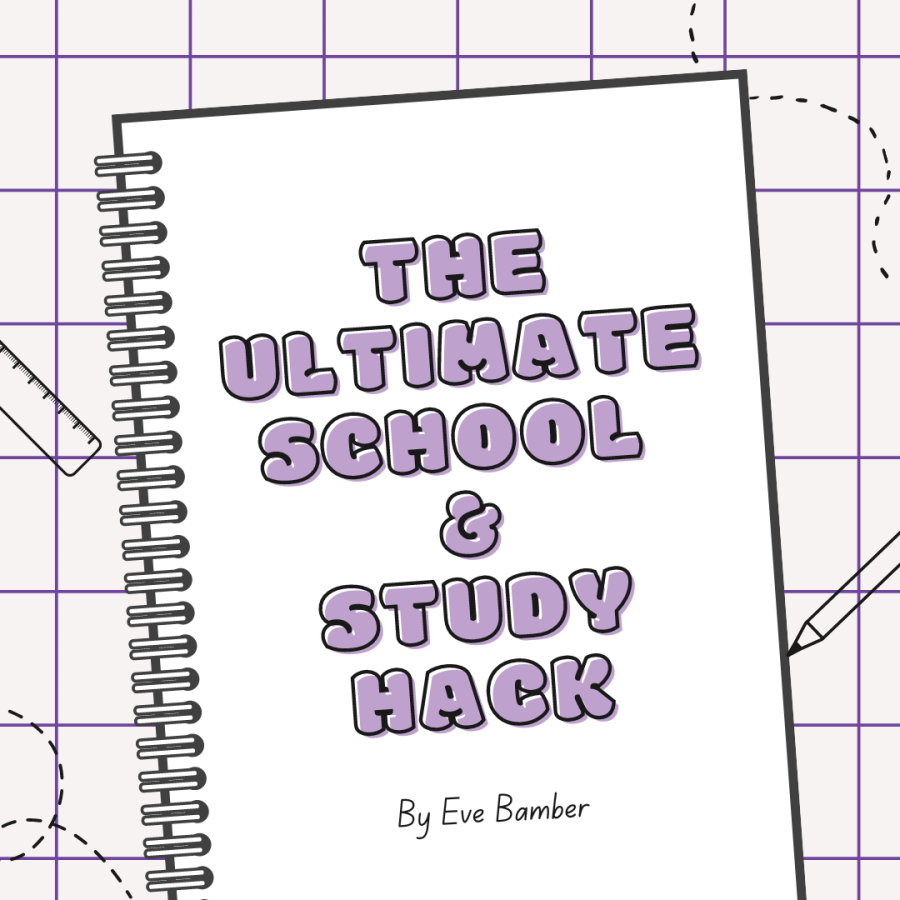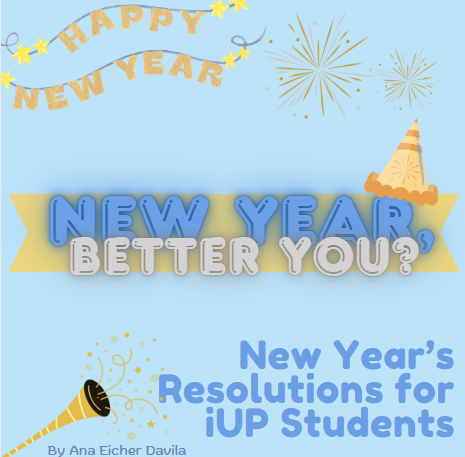THE ULTIMATE TIME-SAVING SCHOOL & STUDY HACK
As we return to school, how can you approach your tasks by thinking smarter instead of harder?
The Ultimate Time-Saving School & Study Hack
As we return to school, how can you approach your tasks by thinking smarter instead of harder?
It’s Back to School Season
We’ve officially been back at school for almost a month now, isn’t that crazy? No matter what grade you’re in, balancing school and life is definitely a difficult feat. However, as virtual students, we’re given opportunities that the everyday brick-and-mortar student may never get. So how do we take advantage of everything we get offered as iUniversity Prep students? Well, at the core of transforming our school and study habits, we need to start thinking smarter, not harder.
Parkinson’s Law: What is it?
I’m sure you’re familiar with several well-established study methods claiming to improve effectiveness, such as the Pomodoro method, retrieval practice, or using color-coded notes. All these, while functional in their own right, don’t really help you figure out how to use your time successfully. Whether you’re a student-athlete with only 2 hours between your practices or an average teenager trying to take advantage of the time between shifts at work, there is no simple equation for scheduling your school work and study time into your busy day. So how do we figure out how to make the most of what time we have? The answer is Parkinson’s Law.
Tracing back to an essay published in the British Newspaper, The Economist, in 1955, Cyril Parkinson coined the basic idea of the law today; work will expand to fill the time allotted for its completion. There are several varied interpretations of this law, but they all build upon the same idea that all work fills the time given for its completion. So what exactly does this look like? In his essay, Parkinson provided an example of a woman whose only task during the day was to send a postcard. Typically, this is a simple task that would take up as much time as 5 minutes in a busy person’s day. However, the woman goes on to spend an hour finding the card, then searching for her glasses, then an hour and a half writing the card, then choosing whether or not to bring an umbrella to the mailbox, and this continues to fill up her entire day. Because this woman had given herself a whole day to complete a task, the work to finish this task expanded to fill the entire day. Though Parkinson was the first to properly articulate this phenomenon, many experiments have been able to demonstrate the effects of the law in real life and provide updated examples of the anecdote Parkinson used in his essay.
Parkinson’s Law is perhaps the explanation we’ve been looking for behind why we procrastinate. Imagine you have an English research paper due in two weeks. The time you spend researching, organizing your thoughts, brainstorming, drafting, editing, and finalizing your paper will expand to take up those two weeks until the deadline. To organize this time, you could schedule the research for week one and focus on writing for week two. But like the majority of the population, you may fall into the trap of procrastination, as the more time you have, the longer you will take to finish the task. So instead, you may not do anything during the first week and instead turn your attention to other homework. Then, in the second half of the second week, you’ll focus all your attention on completing the research paper as you enter panic mode to meet the impending deadline hanging over your head. So why did this happen? At the beginning of the two weeks, you were able to tell yourself, “I have plenty of time to get this done,” and with this in the back of your mind, you end up wasting time thinking that you’ll still have enough time, in the end, to deliver on your work. Parkinson’s Law provides reasoning for everyday procrastination and gives us insight into our poor work habits. Now, how can we transform our school and study patterns to work for us, instead of against us?
Putting Parkinson’s Law into Play
With the newfound knowledge of Parkinson’s Law, you can truly transform your school and study habits as a student to make the most of the time that you have. So how can we do this? Let’s dive into a few simple steps of how using Parkinson’s Law can make you the most productive version of yourself as a student.
In order to start saving time when doing school work and studying, you need to trick your mind into thinking that you have less time than you actually have. When approaching your school or study work, you’ll usually have a to-do list with your assignments planned out, and one by one you’ll move through each task. More often than not, you spend a lot more time on each task than needed. That AP assignment you’ve been putting off ends up being a three-hour task as you over-take notes and keep re-reading textbook pages, forgetting the actual content you’re supposed to be learning. Your science lab should only take thirty minutes but ends up taking ninety minutes as you try to multi-task and catch up on YouTube at the same time. After all, you have the whole day to finish these, right? This mindset is exactly what needs to change in order for you to take advantage of Parkinson’s Law!
Changing this stream of thought is going to take practice. The best way to do this is to impose your own deadline and face that deadline with ultimate focus. When you sit down to tackle that AP assignment, set the timer for an hour and fifteen minutes. While doing this, train yourself to think, “I have an hour and fifteen minutes to do this assignment, and no more.” When the timer goes off, whether you’re done or not, force yourself to move to the next task in order to reinforce this self-made deadline as unbreakable like other deadlines. Over time, you’ll fall into the habit of only using the amount of time you’ve set to do the assignment and no more. While saving time, you’ll also transform the way you learn. Instead of over-taking notes, you’ll narrow them down to include only priority information. You’ll be more attentive to the textbook in order to avoid re-reading pages multiple times. You’ll be comfortable moving at a faster pace, further preparing you for future timed exams. Running against your self-made deadline and working against the clock is going to unlock a level of productivity that you’ve never seen before.
Testimonials from iUPrep Students
Once utilizing this ultimate school and study hack, you’ll see the effects almost immediately. From extra downtime to an increased focus, the results are only going to work to your advantage. Take a look at the below testimonials from iUPrep students. Before getting their thoughts, the students below were challenged to implement Parkinson’s Law strategies throughout their second week of school and see if this is something they believe is worth using for the rest of the year.
“Wow- this thing is great! I’ve been able to move so much more quickly through my classes, even my Pride teacher was impressed!! Thank you for sharing this and saving me time!” – 7th Grader at iUPrep
“Reading about Parkinson’s Law made sense, but I wasn’t exactly sure how it was going to work this week. I’ve been taking forever to work through Algebra and AP Human Geography, but this week, things started to change. The first day was a little difficult having to put myself on a time restraint, but I see why it’s so important to the process. As the week moved on, I got faster at the assignments. At the end of each day, I had so much more time to spare to spend on study/review and club things! I will definitely be using this strategy moving forward.” – 9th Grader at iUPrep
“This is THE life hack guys! I promise you, this is going to transform your school life! I’m disappointed that I’m only just trying this out as it could have saved me so much time during my first two years of high school! If you’re looking to save time, increase your productivity, and overall become a better student, start implementing Parkinson’s Law into your daily life practices!” – 11th Grader at iUPrep
So is Parkinson’s Law worth taking advantage of? Absolutely! Students of all ages have been able to utilize practices from this law to get their work done fast and achieve high grades simultaneously. If these students have been able to transform their school habits using Parkinson’s Law, you have the potential to as well!
Practicing for Progress
Now that we’re back to school, we’re trying to build up our toolkit with supplies that will last us the whole year. Our favorite pens, markers, computer apps, and notebooks will stick by us as trusty sidekicks throughout our school year endeavors. Now, you’ve got one more tool to add, Parkinson’s Law. Implementing these strategies and practicing Parkinson’s Law will elevate your studious qualities to a whole new level. The progression you’ll see will be unmatched as you soar to new heights in your school work and studies. Make this year the year that you’re a successful student, and use Parkinson’s Law to help you along the way.
Sources:
Parkinson, C. N. (n.d.). Parkinson’s Law. The Economist. Retrieved September 5, 2022, from https://www.economist.com/news/1955/11/19/parkinsons-law
FalconerEditor, J., & Falconer, J. (2022, July 28). How to use Parkinson’s law to get more done in less time. Lifehack. Retrieved September 5, 2022, from https://www.lifehack.org/articles/featured/how-to-use-parkinsons-law-to-your-advantage.html
Maxim Dsouza. (2020, April 29). Parkinson’s law – why you waste time and 5 ways to avoid it. Productive Club. Retrieved September 5, 2022, from https://productiveclub.com/parkinsons-law/

My name is Eve Bamber, and I’m a senior here at iUniversity Prep. I’ll be one of your Editor-in-Chief's for this year at iHoot! This is my fourth year...













Anika Goswami • Sep 18, 2022 at 10:17 pm
This is a really great technique and I will definitely try it! Thank you Eve <3
Anika Goswami • Sep 16, 2022 at 10:03 am
I am definitely gonna try this! Great job on the article! <3
connor • Sep 10, 2022 at 1:02 pm
THIS IS GENIUS
Makenna Horne • Sep 10, 2022 at 10:51 am
This article is amazing, Eve! I related to it a lot. I typically give myself the whole week, Monday to Sunday to complete my work. And low and behold school floods into the weekend. I also give myself from the moment I wake up until my mom gets home from work to do school. With all of the 5-minute breaks turning into 30, it takes me 8 hours just to get 3-6 hours of actual productive work done! I am definitely going to implement this!
Eve Bamber • Sep 11, 2022 at 1:21 pm
Thanks, Makenna! I hope giving this a try helps you out! Thank you for your lovely comment 🙂
Curtis • Sep 9, 2022 at 12:04 pm
This is a great idea for anyone that is struggling with time management! Thank you for the advice!
Marcus • Sep 9, 2022 at 11:29 am
WOW! It totally works, I saved 3+ hours in my day!!!! TYSM